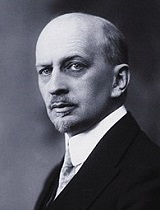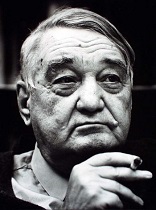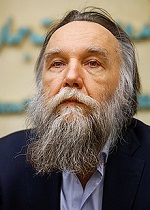|
TRANSLATE THIS ARTICLE
Integral World: Exploring Theories of Everything
An independent forum for a critical discussion of the integral philosophy of Ken Wilber
  Frank Visser, graduated as a psychologist of culture and religion, founded IntegralWorld in 1997. He worked as production manager for various publishing houses and as service manager for various internet companies and lives in Amsterdam. Books: Ken Wilber: Thought as Passion (SUNY, 2003), and The Corona Conspiracy: Combatting Disinformation about the Coronavirus (Kindle, 2020). Frank Visser, graduated as a psychologist of culture and religion, founded IntegralWorld in 1997. He worked as production manager for various publishing houses and as service manager for various internet companies and lives in Amsterdam. Books: Ken Wilber: Thought as Passion (SUNY, 2003), and The Corona Conspiracy: Combatting Disinformation about the Coronavirus (Kindle, 2020). Part 6 | Part 7 | Part 8 | Part 9 | Part 10 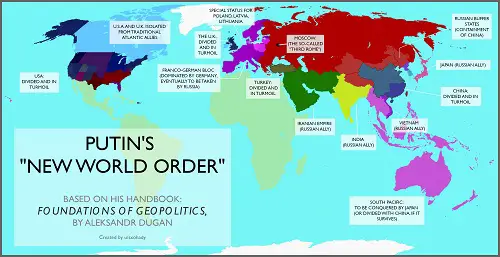
A map of the plans laid out in Aleksandr Dugin's 'Foundations of Geopolitics' which is said to be popular within the Russian military and among foreign policy elites.
Putin's Dark Ideology of a ‘Sacred Greater Russia’Frank VisserAbstract by ChatGPT. Frank Visser delves into the ideological underpinnings of Putin's actions towards Ukraine. While geopolitical factors like NATO's expansion are relevant, deeper philosophical influences from Russian thinkers, notably Ivan Ilyin, Lev Gumiljov, and Aleksandr Dugin, play a significant role. These philosophers promote visions of a united Eurasian Russia, dismissing separate Ukrainian identity. Dugin, for instance, envisions a vast Russian Empire countering Western influence. When leaders like Putin adopt these ideologies, they manifest in real-world conflicts, as witnessed in Ukraine. The article concludes by questioning the West's potential responses, given the deeply rooted opposing ideologies.
So I propose to have a look at this "idealist" side of things. What rational or irrational ideas drive Putin?
Two essays by Joseph Dillard on Integral World on the Ukraine crisis have sparked quite some debate.[1] His controversial point was that we can't just blame the crisis on evil Putin, and have to have an honest look at the role the West has played leading up to the war. The topic is so charged that this often leads to accusations of being a Putin-lover or worse. We should resist such framing, however, both when it comes to Putin and the West. As the saying goes, there are two sides to every story. Every country, especially larger ones, have legitimate security concerns around its borders. This applies both to Russia as well as to China and the United States. When these concerns are dismissed for years, sooner or later you get into trouble. As is the case now with the Ukraine border. Some Idealist considerations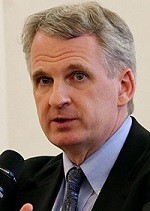 Timothy Snyder Yet, much more can be said about this imminent worldwide crisis. These are "realist" considerations, and apply to every world power, regardless of its ideology. But of course, this is also a case of clashing worldviews, values and ideologies. So I propose to have a look at this "idealist" side of things. What rational or irrational ideas drive Putin? Which philosophers are his major sources of ideas, according to his own words? And do these ideas clarify what we see happening now in the present? I will primarily focus on the work of American historian Timothy Snyder, who has specifically dealt with these areas, for example in The Road to Unfreedom (2018). That might seem a small basis, but it does provide important and interesting pieces of the puzzle. Is this a clash between democracy and autocracy, as Biden has stated? Integral Theory would color this as a clash between rationalistic-pluralistic and fundamentalistic-aggressive cultures. Steven Erlanger writes in The New York Times: President Biden took office with the idea that this century's struggle would be between the world's democracies and autocracies. This is followed by a rather chilling conclusion: Mr. Putin has repeatedly asserted that Ukraine is not a real state and that the Ukrainians are not a real people, but actually Russian, part of a Slavic heartland that also includes Belarus.[2] This is actually no different from China, which doesn't acknowledge Taiwan as a separate country, or Milosevic, who wanted to resurrect a Greater Serbia, Erdogan reaching out to Turkish people living abroad and Orbán doing the same in Hungary. Ethnic nationalism instead of being a citizen of a country, regarldess of one's ethnicity. Ironically, Putin has now done more to strengthen nationalistic feelings in Ukraine, contrary to his aim to see them as Russians. His plan to attack Ukraine has backfired enormously. Russians living in Ukraine must be in a deep loyalty conflict: am I a citizen of Ukraine or part of a Russian "empire"? Should I welcome the invaders of Ukraine or fight them like hell? Putin's favorite philosophersIn The Road to Unfreedom American historian of Eastern Europe Timothy Snyder mentions three Russian philosophers as crucial to understand Putin: religious and political philosopher Ivan Ilyin, historian and ethnologist Lev Gumiljov and political analyst Aleksandr Dugin.[3] Let's meet them one by one (I will give a brief overview of their core ideas based on Wikipedia and a Dutch magazine article[4]).
Ivan Ilyin saw a future mission for Russia, it would liberate itself through "Christian fascism." In his view, the Russian Revolution happened due to a lack of self-respect. Instead of revolting against the state, every citizen is a member of the state with certain rights and certain duties. Inequality was inevitable. But the higher classes had a certain duty of educating the lower classes. Relevant for our context: "For Ilyin, any talk about a Ukraine separate from Russia made one a mortal enemy of Russia. He disputed that an individual could choose their nationality any more than cells can decide whether they are part of a body." He initially approved of Hitler as a defender of civilization against Bolshevism, and explicitly of his antisemitism. "Ilyin has been quoted by Russian President Vladimir Putin, and is considered by some observers to be a major ideological inspiration for Putin." Lev Gumiljov saw the Russians as descendants of the steppe people who traversed Asia and Europe for centuries. He spent most of his early life in labor camps, but later became a cult philosopher, even if due to his mix of history, ethnography and esoteria, his scientific credibility was doubtful. He believed Russians had a special drive, what he called passionarnost, which was lacking in the West. He postulated a Eurasian civilization with Russia as the pulsating heart. He also believed both Ukraine and Russia belonged to the same super-people, as brothers and sisters (his term: complimentarnost), so Ukraine would best prosper when it belonged to Russia. Putin identifies with this steppe-mentality and cited Gumiljov often in his speeches. He believes Russia is still a young nation on the rise. Claims to Donbas territory are part of this deep expansionist drive. Aleksandr Dugin, the only one of these three thinkers who is still alive, is a Russian political analyst and strategist known for views widely characterized as fascist. "Dugin is believed by some to have been the brains behind Russia's annexation of Crimea, as part of Dugin's advocacy for Ukraine becoming 'a purely administrative sector of the Russian centralized state,' which he refers to as Novorossiya [New Russia]. Dugin calls for an illiberal totalitarian Russian Empire to control the Eurasian continent from Dublin to Vladivostok to challenge America and 'Atlanticism'." He is seen as the driving force behind the invasion of Crimea and the current war in Ukraine. "In August 2014, Dugin called for an eradication of Ukrainian identity." "On 10 October 2014, Dugin said, "Only after restoring the Greater Russia that is the Eurasian Union, we can become a credible global player." Real-world consequences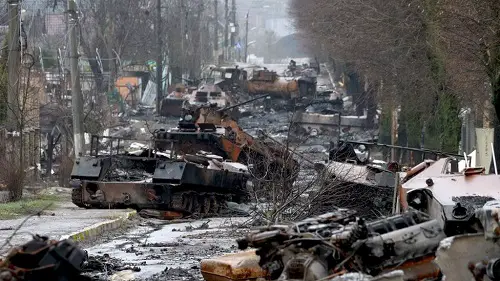
Ukraine war: Bucha street littered with burned-out tanks and corpses (BBC)
The point is not how credible and reliable these thinkers are, but that these ideas have real world consequences, when picked up by powerful leaders. The vision they all subscribe to is that the West is weak, decadent and evil, and that only a strong and united Eurasian empire can withstand its lure. The fact that Ukraine seems to have turned towards the West, both culturally, economically and militarily, is unacceptable and unbearable for these thinkers—including Putin himself. Instead of a pluralistic democracy they advocate a "true fascism", which sees all citizens belonging to this ethnic group as obedient members of the same state-based totalitarian government.
The point is not how credible and reliable these thinkers are, but that these ideas have real-world consequences, when picked up by powerful leaders.
Ukraine has become an "anti-Russia", solely due to Western influence, according to this ideology. This anti-Russia must be destroyed. So when people demand freedom and democracy—which happened during the many and largely unsuccessful color revolutions in the Middle East and Asian countries, which Putin watched with apprehension—this can only be the case because they have been bribed by the West? Perhaps these oppressed populations just wanted to be free? Dutch journalist Casper Thomas ends his essay "Destruction was always the goal: the murky ideas in the brain of a dictator" on this pessimistic note: And that's what Putin is all about. When Ukraine chose a path that led away from Russia's model—collective submission to the will of the leader—towards the European model of pluralism, the rule of law and an elected government—with its own church, separate from Moscow—Putin saw that as an attack on what he believed deeply. "Ilyin's Christian totalitarianism, Gumilyov's Eurasianism and Dugin's Eurasian Nazism," is how Timothy Snyder summarizes the foundations of Putin's ideology. Putin's war, Russia's stalled convoys and economic isolation make clear, was never driven by tactical considerations. Ukraine is being blasted for the ideas that have nestled in the minds of a dictator and his clique. Those ideas do not allow an independent Ukrainian state and a people who call themselves Ukrainians. The result is a mission of destruction unfolding before the eyes of the world.[3] I found a further interesting opinion piece on Al Jazeera called "Putin's philosophers: Who inspired him to invade Ukraine?"[5] The authors mention John Maersheimer and Pepe Escobar (which we encountered in Dillard's essays[1]), who had warned that NATO expansion eastwards could lead to trouble with Russia. But they point out: While NATO's continued efforts to encircle Russia, despite many warnings from the Kremlin, appear to be the immediate trigger that led Putin to invade, there were also deeper philosophical and ideological motivations behind this invasion—motivations only certain Russian thinkers can help us understand. Again, Ivan Ilyin is mentioned as a major influence on Putin, but especially Alexandr Dugin deserves that credit, through his works The Fourth Political Theory (2009) and Foundations of Geopolitics (1997). The last title has become required reading in all Russian military academies. If Russia is to restore its former power, Dugin argues, "Russia must ensure that 'Atlanticism'—the liberalism, free markets and democracy representing North America and Western Europe—loses its influence over "Eurasia"—the territories once governed by the Soviet Union, which needs to stand for hierarchy, tradition and a strict legal structure." Russia should "push Atlanticism out of Eurasia" and do everything possible to de-stabilize Europe and the US. Hence Russia's attempts to influence the US Elections and the UK Brexit? Killing your own brother?
"Und willst Du nicht mein Bruder sein, so schlag' ich Dir den Schädel ein": if you won't be my brother, I'll beat your skull in. —German saying.
Timothy Snyder, whose work we have used for this essay, writes on his Substack blog—before the invasion happened—regarding Putin's "creative" rendering of Russian and Ukrainian history:[6] Last July, President Putin published a strange missive about Ukraine and Russia and their historical relationship. It presents the kind of argument that makes historians wince. The basic idea is that a thousand years ago there was a country called Rus, the most important city in Rus was Kyiv, and now a thousand years later Kyiv is the capital of Ukraine, and therefore Ukraine cannot be a real country, and everyone involved and their descendants must be Russians or a brotherly nation to Russians. 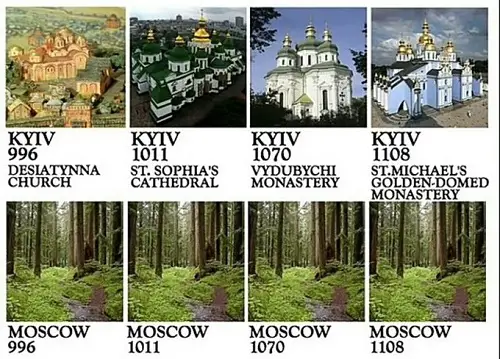
What was first: Moscow or Kiev?
So I could say: Rus' was founded by Vikings, Moscow did not exist at the time, Kyiv was not ruled from Moscow until late in its history, the story of the brotherly nations is recent, as for that matter is national identity in the modern sense. But you can't really engage in historical argument with people who are set on believing a myth, let alone with presidents who believe that the past is just there to confirm their present prejudices. A Cross-Level DebateSumming up: though the immediate cause of the Ukraine invasion by Russia might have been the continuous expansion of NATO, resulting in "security concerns" for that former superpower, deep ideological and spiritual motives fuel this whole "special operation", especially when from a purely military standpoint this Ukraine war seems to be a tragic failure. But perhaps, as countries should have the right to determine their future destiny, so should empires? Yet, in our modern understanding, invading and destroying a country and its citizens purely because they should fit into a dubious and pre-modern ideology is unacceptable and should be opposed. How? With arms or talks? How to speak to and reason with opponents who live in completely different cultural and spiritual worlds and, more importantly, when both of the parties feel superior to the other?[7] Integral Theory would frame this as a cross-level debate, when the two participants' center of gravity is different, with one being "higher" than the other, developmentally speaking. Since the lower position cannot rise to the higher, should the higher lower itself to the lower? Should we use violence against Putin's violence? This can only lead to more escalation and casualties. Or should we appeal to his reason and common humanity? Or, should we try to "understand" his ideological motives? But what if an ethnocentric, theocratic-fascist form of government simply doesn't want to change, because the alternative of democracy and liberalism is seen as decadent and weak? A pragmatic solution would be to "agree to disagree" on the specifics of one's empires, and to peacefully co-exist and respect each other's borders. That, however, doesn't leave much else for the Ukrainian people than to give in to Putin's demands of becoming a "neutral" state with uncertain international security guarantees. At least under that arrangement, Ukraine is recognized as a state of its own, which can, within these limits, decide on its future course. And further violence is ended. Here's a recent interview with Timothy Snyder from Channel 4 (22 March 2022): Last week saw the Russian leader stage a pro-war rally in Moscow, as he continued to preach his take on Russian and Ukrainian history.
Snyder: "[Putin] is an ideologist. He has an idea about what Russia should be like, and that idea includes controlling Ukraine. I think that's the thing that we've gotten wrong. We've been trying to make him more rational in our terms than he really is."
This video from "TLDR News EU" analyzes the cult Putin has created on political, social and cultural levels:
"Putin's cult of influence can broadly be said to have three interlocking and interconnected strands, the political the cultural and the social, and when it comes to all three strands this isn't something that's just appeared overnight."
NOTES[1] Joseph Dillard, "Is Putin Red and the West Green?" and "The Ukraine Crisis: An Opportunity to Wake Up Out of Groupthink", www.integralworld.net, March 2022. [2] Steven Erlanger, "Putin's War on Ukraine Is About Ethnicity and Empire", New York Times, March 16, 2022. [3] Timothy Snyder, The Road to Unfreedom: Russia, Europe, America, Random House UK, 2nd edition, 2019. [4] Casper Thomas, "Vernietiging was altijd het doel, De troebele ideeën in het brein van de dictator", De Groene Amsterdammer, nr. 10, 9 maart 2022. [5] Santiago Zabala & Claudio Gallo, "Putin's philosophers: Who inspired him to invade Ukraine?", www.aljazeera.com, 30 March 2022. [6] Timothy Snyder, "How to think about war in Ukraine?", January 18, 2022. [7] Frank Visser, "Hubris and hypocrisy are present on both sides", www.integralworld.net, March 2022.
Comment Form is loading comments...
|
